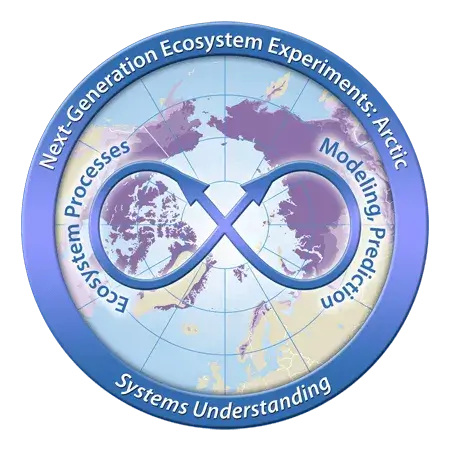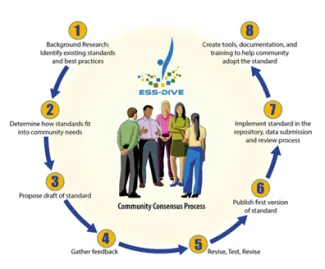Enabling FAIR data in Earth and environmental science with community-centric (meta)data reporting formats
The ESS community generates a variety of multidisciplinary data, and the purpose of the reporting formats is to create a level of consistency that will allow for better integration and analysis of data.
Multiple community-centric project teams under the guidance of ESS Data Infrastructure for a Virtual Ecosystem (ESS-DIVE) created 11 guidelines and templates, or reporting formats, to help researchers create more findable, accessible, interoperable, and reusable (FAIR) data packages. Whereas existing standards may be difficult to learn or may not be applicable to the given data or accessible to the researcher, reporting formats help harmonize the diverse, multidisciplinary environmental data types generated by the Earth science community.
The project teams researched existing standards and resources, proposed numerous drafts, and sought input and consensus from Earth science research communities, ultimately producing reporting formats that can be realistically implemented.
These reporting formats help other users find and reuse data products because “[e]arly adoption of a consistent way of compiling data can help individuals or research teams avoid ad hoc data collection practices and also help researchers efficiently integrate their data, particularly when multiple analyses or teams are involved.” Crystal-Ornelas and coauthors describe the need for the reporting formats and the unique approach the project teams took to develop them, the managing and archiving on GitHub, and examples of implementation. Several NGEE Arctic team members contributed to the development of three of the current reporting formats: file-level metadata, CSV file formatting guidelines, and leaf-level gas exchange.
Crystal-Ornelas, R., et al. 2022. “Enabling FAIR data in Earth and environmental science with community-centric (meta)data reporting formats.” Scientific Data 9: 700. https://doi.org/10.1038/s41597-022-01606-w.
This research was supported by the Director, Office of Science, Office of Biological and Environmental Research of the US Department of Energy under Contract No. DE-AC02-05CH11231 as part of the Next-Generation Ecosystem Experiments (NGEE Arctic) project.
For more information, please contact:
Terri Velliquette
velliquettet@ornl.gov

